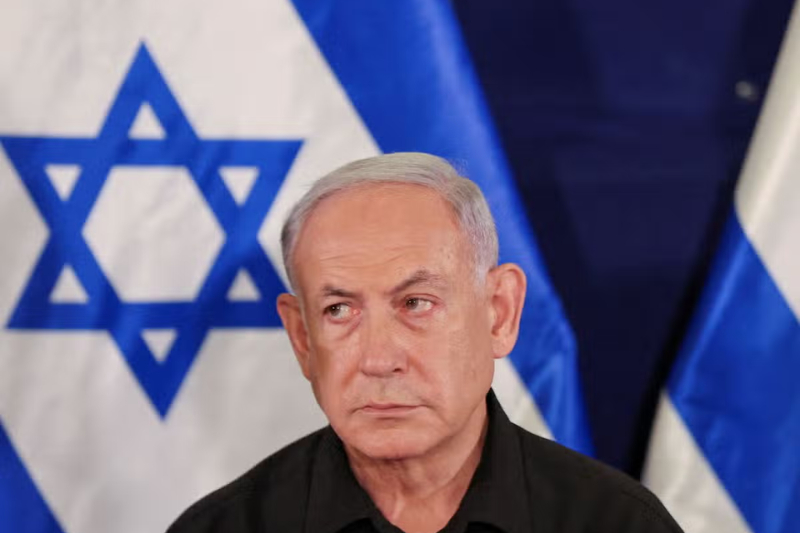Netanyahu’s Strong Rejection and Accusations
Israeli Prime Minister Benjamin Netanyahu has vehemently rejected South Africa’s claims of genocide, referring to the world as a “twisted” place. South Africa initiated hearings at the International Court of Justice, accusing Israel of committing genocide against Palestinians during its conflict with Hamas. Netanyahu countered by questioning South Africa’s moral authority, pointing to the situation in Syria and Yemen, and attributing those atrocities to Hamas’s partners.
Netanyahu asserted Israel’s right to defend itself against Hamas and pledged the Israeli army’s commitment to minimizing harm to non-combatants. Despite South Africa’s accusations, Israel remains steadfast in its stance, setting the stage for a prolonged legal battle over the contentious issue.
South Africa’s UN Court Challenge
South African Justice Minister Ronald Lamola presented his country’s case at the United Nations’ highest court, arguing that the recent Gaza conflict is part of Israel’s longstanding persecution of Palestinians. South Africa seeks an immediate suspension of Israel’s military actions in Gaza, an extraordinary request considering the expected extended duration of the legal proceedings. Lamola emphasized the gravity of the situation, asserting that without international intervention, the Palestinian people in Gaza face total destruction.
South Africa further requested preliminary rulings from the court that were legally binding on Israel. Lamola condemned the October 7 Hamas attack on southern Israel, leading to over 1,200 deaths and around 250 abductions. Netanyahu, however, dismissed this attack as justification for genocide, setting the stage for a contentious legal battle between the two nations.
Disputed Death Toll and Humanitarian Concerns
The conflict’s toll in Gaza, according to Hamas-administered Health Ministry figures, stands at over 23,000 deaths, with two-thirds being women and children. Israel’s air, land, and sea assaults face accusations of indiscriminate targeting, with no distinction between civilians and combatants. The contentious issue of civilian casualties adds complexity to South Africa’s case, raising questions about the proportionality of Israel’s military actions and the humanitarian impact on the Palestinian population.
As the legal battle unfolds, international attention remains on the longstanding Israel-Palestine conflict. South Africa’s bold move to bring the case to the International Court of Justice adds a diplomatic dimension to the ongoing tensions, challenging Israel’s actions in the eyes of the global community.
Keep Reading
International Responses and Diplomatic Implications
The dispute between Israel and South Africa has triggered varied international responses, with some nations expressing concerns about the humanitarian situation in Gaza while others support Israel’s right to self-defense. The diplomatic fallout from this legal battle may have broader implications for global relations, particularly regarding the Israel-Palestine conflict. As the case unfolds, the international community is closely watching the legal proceedings at the International Court of Justice.
Netanyahu’s accusations and historical context
Prime Minister Netanyahu‘s accusation of hypocrisy against South Africa raises questions about historical parallels and geopolitical dynamics. While South Africa invokes the term “genocide” in the context of Israel’s actions, Netanyahu points to conflicts in Syria and Yemen, attributing responsibility to Hamas’s allies. The historical background and geopolitical intricacies of the Israel-Palestine conflict contribute to the complexity of South Africa’s legal challenge.
Legal Battle and Long-Term Implications
A significant development in the ongoing Israel-Palestine conflict is the legal battle that South Africa started. The allegations of genocide, if taken seriously by the International Court of Justice, could lead to long-term diplomatic and legal ramifications for Israel. The proceedings may also influence the discourse surrounding the conflict, potentially shaping international perceptions and actions in the future.
Disputed figures and human rights concerns
The conflicting figures regarding casualties in Gaza highlight the challenges of assessing the humanitarian impact of the conflict. While Hamas reports a death toll of over 23,000, Israel disputes these numbers, emphasizing its efforts to minimize harm to civilians. The International Court of Justice will likely scrutinize the evidence presented by both parties, addressing human rights concerns and determining the proportionality of Israel’s military actions.
Ongoing Conflict Dynamics and Prospects for Peace
The legal battle adds a new dimension to the already complex dynamics of the Israel-Palestine conflict. It remains to be seen how the International Court of Justice will navigate the intricacies of the case and whether its rulings will contribute to efforts for peace in the region. The ongoing hostilities between Israel and Palestine, as well as the South African legal challenge, highlight the need for diplomatic efforts and international cooperation to address the conflict’s underlying causes.

